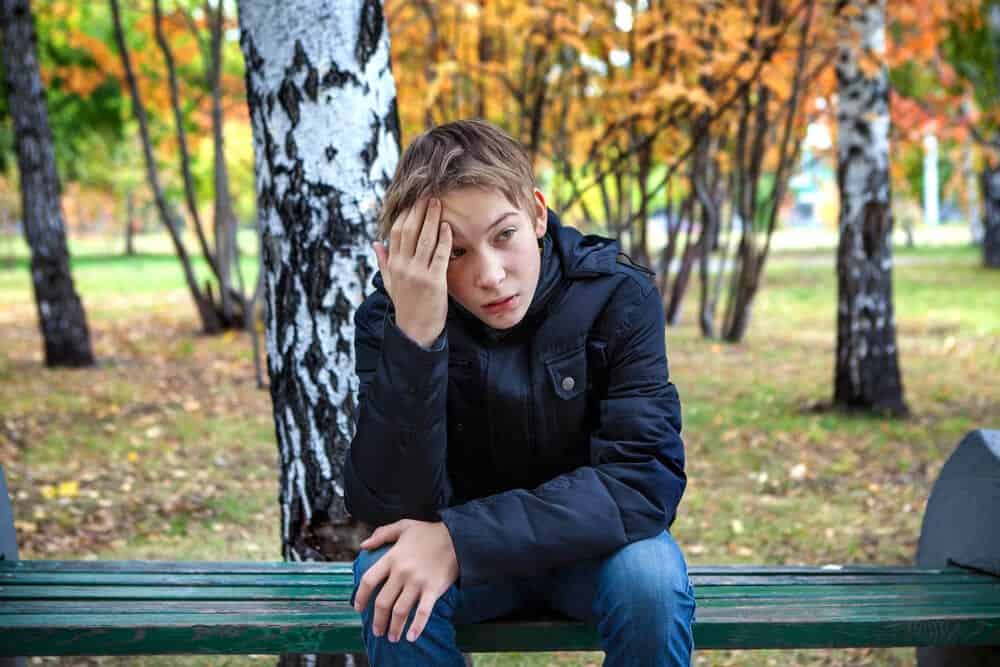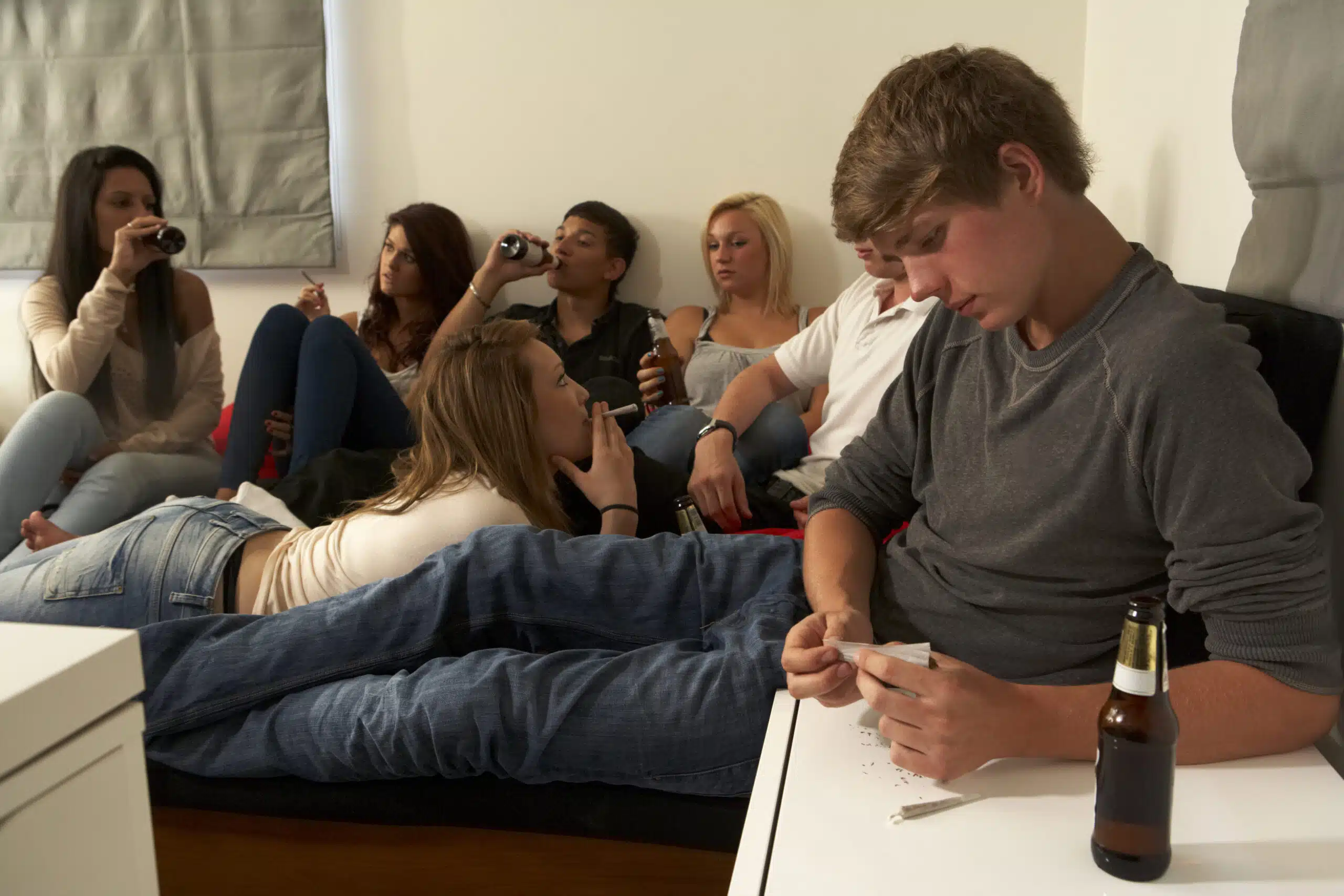
7 Films and Shows About Teen Anxiety and Depression
All teenagers experience some level of stress in their ever-changing, high-pressured lives and anxiety is a normal reaction to it. It is not uncommon for teens to experience anxiety and it may in fact help some teens to manage challenging situations such as an exam, a first date or sports event. The brain responds to those anxious feelings by raising the heartrate, creating butterflies in the stomach and excessive sweating.
Depression can also be triggered in teens as they try to manage the increasing stimuli and life challenges that they face. From academic pressure to relationship experiences to acceptance of their new bodies, teens juggle so many new and expanding emotions and feelings that their developing brains cannot process all of it.
Unfortunately, for some teens, normal levels of stress and anxiety extend well beyond the event itself and interfere with their everyday lives. It may create a rift in friendships, trouble sleeping, difficulties in school, and an avoidance of extracurricular activities. It may create deep feelings of sadness, low self-esteem and a lack of desire for anything that they once enjoyed.
According to the National Institute of Mental Health, twenty five percent of teens in the 13 to 18-year-old range suffer from an anxiety disorder and twenty percent of teenagers will suffer from depression. Being mindful of how others see them at this very precarious time in their lives, most teens are hesitant to speak up and actually tell someone that they are experiencing unusual feelings, thoughts, and emotions.
Does My Teen Have Depression? – Take Our Free Test Today
Since there are no visible indicators of depression and anxiety and teens don’t walk around with a sign on their neck saying “I suffer from anxiety!” or “I am depressed”, it is very difficult for people to understand what a teen may be experiencing or how they may be able to help. It is very easy for someone to stereotype a teen’s behavior or mental illness due to lack of knowledge that he or she is afflicted. There is very little information available in the media about the true nature of mental health disorders and their impact and what is out there overdramatizes the symptoms and behaviors, making teens out to be monsters.
Because of the lack of understanding and the stigma associated with anxiety, many teens typically feel judged, isolated and fearful of speaking up about their disorder. They suffer in silence rather share their feelings and emotions for fear of being stereotyped as crazy, or having “problems”. In order to fight this stigma and get more teens the help that they need, it is important to bring to light the symptoms and signs of mental health issues.
Traditionally, people didn’t talk about their feelings and challenges that they were having with their mental health. No one wanted to admit that they had a problem or that a family member may be suffering. It was one of those “secrets” that families keep, believing that it will go away or even worse, in denial that anything was wrong.
With negative views from society as the number one reason that teens were not receiving help for their mental health issues, the U.S. government decided to step in and save lives. In 1990, Congress officially established the first week of October to be Mental Illness Awareness Week to advocate, educate and fight the stigma that mental health issues carry. Although awareness has come a long way and people are now recognizing the severity of the challenges that sufferers face, true compassion and understanding is still far off.
Since this declaration in 1990, the media has played a significant role in breaking the stigma and bringing awareness to the issues of teen anxiety and depression. Unfortunately though, when it comes to finding shows or movies that accurately depict these mental health challenges, it is no small feat! Most of the time, viewers hear about mental illness it is relative to a psycho killer or deranged schizophrenic. Rarely do you find any media coverage sharing compassion and empathy for those who suffer. Although shows depicting the real-life struggles are few and far between, we have compiled a list of 5 Films and television shows that do address teen anxiety and depression.
Each of these shows or movies accurately represents the disorders in a realistic way, providing the audience with a sense of understanding and sending a powerful message that those who suffer are not alone.
In September 2016, the miniseries “This is Us” premiered featuring the tragic events of an American family. An emotional drama, the storyline follows several generations of the Pearson family and has received acclaim for its depiction of anxiety and how one family manages it. When a character, Randall, experienced a panic attack, sufferers saw his pain and suffering as relatable and very true to life. Although those with anxiety usually feel detached and alone, this scene showed how family and friends can support a person who is experiencing these feelings.
“This is Us” tends to address topics that many families across all cultures may experience yet in some, it may be unheard of to acknowledge that there is a problem. According to Mental Health America[ii], it is very common that black men will not seek professional help for their mental health challenges. In season one of “This is Us”, Randall asked for help, giving other men and teenage boys of all the ages and backgrounds the courage to ask for help as well.
Later, in season 3 of the show, Toby’s struggle with depression was dealt with unbelievable honesty. His character’s depiction of the illness hit very close to home for many sufferers. After he and his wife struggled to conceive a baby, Toby decided to stop taking his anti-depressant medication and then fell into a severe cycle of depression and anxiety. According to the actor who plays Toby, Chris Sullivan, “People dealing with depression or anxiety want nothing more than to know that they’re not alone.”
Viewers of the show have expressed that the show’s depiction of depression and anxiety is accurate and that if anyone is looking for information about how to treat a loved one who is suffering, they should watch “This is Us”.
“The Road Back” is a short film created by Acadia Hospital, Project AWARE and a group of teenagers in Maine experiencing anxiety and depression. It was selected as one of the 10 best depression videos of 2013 by Healthline.com. With the goal of sharing the true-life experiences of teens who suffer from anxiety, the movie explores the negative stigma associated with teens with anxiety disorder and how it impacts their lives. It follows two high-achieving teenagers around their busy, high-pressured lives and gives an inside view of their symptoms and challenges. As part of the video, producers have included a free online tool that allows teens to evaluate themselves and determine if they should seek professional help for a mental health issue. According to Acadia President Daniel B. Coffey, “Community education and outreach is a cornerstone of our mission to empower people to improve their lives, and I’m pleased that our efforts are being noticed and making an impact for individuals struggling with a mental health issue.”
Producers of the film hope that it will raise awareness about mental health issues such as anxiety and encourage sufferers that there is hope through treatment and support.
“Angst”, an IndieFlix Original movie, is designed to raise awareness and knowledge about the symptoms, to break the stigma about and to encourage those who suffer from teen anxiety. Through interviews with real people, Angst gives sufferers the courage to reach out for help and provides parents and caregivers valuable insight into what teens may be experiencing and how they can support them. It includes discussions with mental health experts who share the causes, the impact, and treatment of anxiety.
The film producers even speak with the Olympic world champion, Michael Phelps, about his struggles with depression and anxiety and the fact that he “just did not want to be alive anymore.”
In 2008, “The Headless Woman” was released and is considered to be a masterpiece among movies about anxiety. The protagonist, Veronica, begins her tailspin into anxiety after hitting something with her car which she believes to have been a child. This became the trigger for her disorder for which there is no cure. She discovered that although there is no end to her anxiety, she could learn to manage it on a daily basis. “The Headless Woman” is an excellent depiction of how sufferers begin to see things that do not really exist and how it can change, if not, ruin their lives if not addressed.
The highly acclaimed television show “The Fosters” has received very favorable reviews for its portrayal of many social themes in which its characters must deal with bias, dysfunction, stereotypes and stigmas, and mental health issues. In its third season, the theme of the “The Fosters” revolved around depression and its impact on the family. According to one viewer, who suffers from depression, the episode had helped her to realize that this time in her life has been about discovery and recreating herself. She was very thankful for the inspiration of hope that the characters gave her.
In the teen drama series “Degrassi: Next Class”, the very real lives of high school students is depicted in a way that shares the real-life struggles of being a teenager. Producers address a wide variety of issues including drug use, feminism, sexuality, dysfunction families and of course, mental illness. In one episode, Miles, one of the main characters, struggles with anxiety as a result of the pressure that he has placed on himself to be perfect. In season 3, Maya seems to be suffering from depression, yet no one seems to notice until it becomes very serious. Aside from the stigma that mental health issues, sometimes onlookers don’t have the courage to step in and offer assistance. In Maya’s case, her best friend blocked her calls and text messages once she started to show real signs of depression rather than getting her help.
Sometimes that is all that it takes to get a person who is suffering the help that they need: the knowledge that someone else cares and is willing to help. It could be the difference between life and death.
Lastly, a recent episode of the new show “One Day at a Time” reminds viewers that discussions about anxiety and depression should never stop. The issues don’t just go away and therefore, we as a society can never shy away from having open conversations and discussions. Mental health issues are real and can impact anyone. It does not discriminate among race, age or gender and can manifest itself in many ways.
The primary take-away from the episode “Hello, Penelope” is that the brain plays tricks with a person, getting them to believe that they are just fine, possibly finished with medication and therapy, yet the real struggles are still present. Sufferers begin to unravel and yet may not truly believe that they are falling into a downward spiral, quickly, if they do not receive the proper medical treatment to bring them back to a state of mental health.
While this list provides a significant number of shows and movies that address mental health issues, struggles still exist and there is an even greater need for the media to share the struggles and challenges that sufferers face and to help them understand that help is available.

At Beachside Treatment Center, your teen will receive the diagnosis and care that they need to overcome the symptoms and identify the causes of their depression or anxiety while learning the coping skills to help them moving forward. When teens are experiencing depression or being buried under anxiety, they cannot see how they have a future or that their situation will improve. The trained medical professionals at Beachside will guide your teen to see the good things in their life and to recognize that it is worth living, helping to put their perspective back on track and so that they can have hope for the future.




